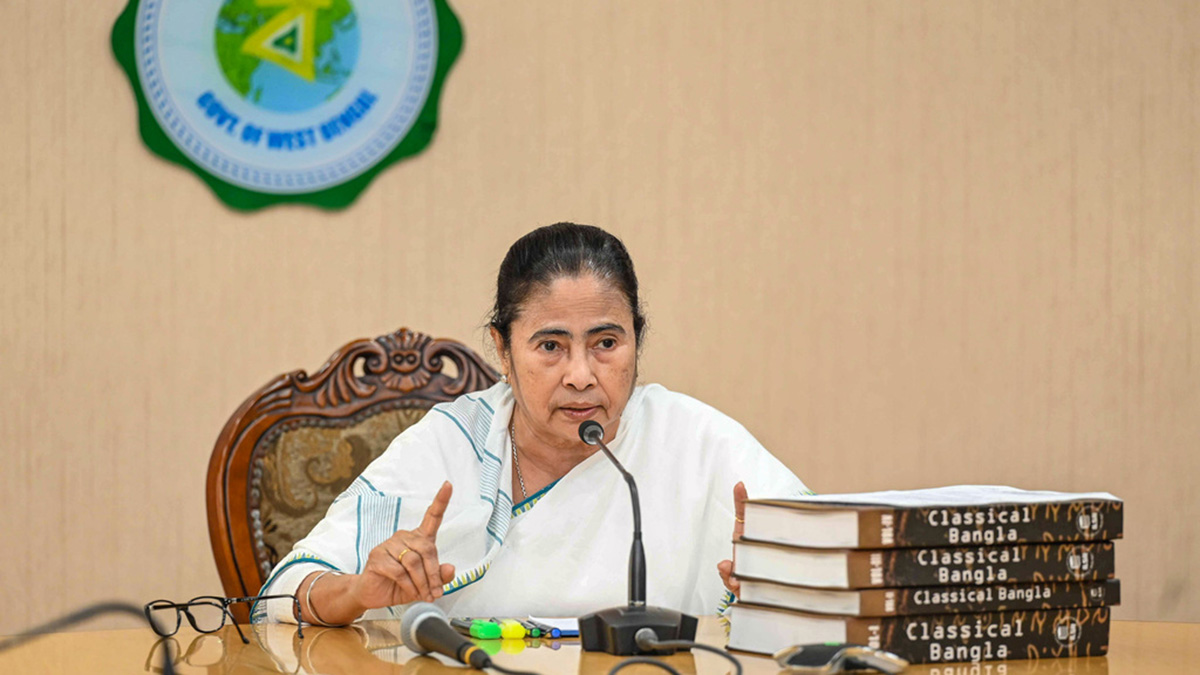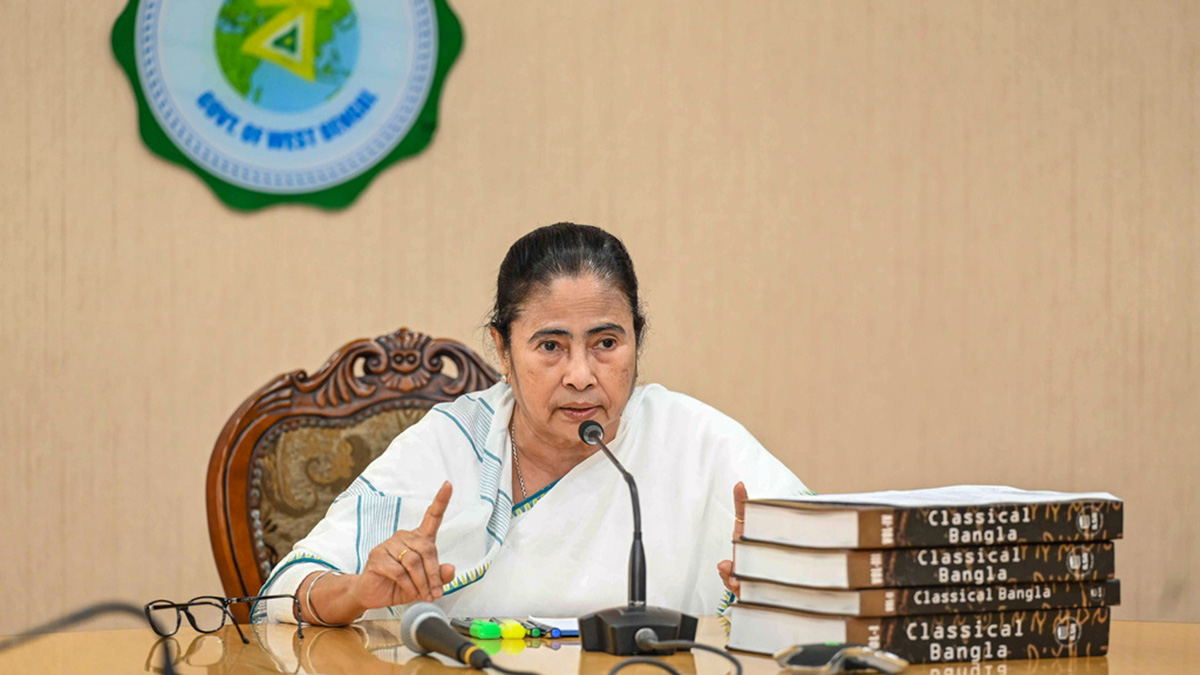In West Bengal, the Left Front sarkar lasted for 34 years. Aveek Sarkar’s rule over the Bengali mindscape fell short by just one year. It is only fitting perhaps that the chief editor of the ABP Group has finally stepped down at a time when the ‘jote’ (alliance) he so staunchly backed (and even allegedly engineered) has been demolished and his bête-noire has returned to power with an overwhelmingly stronger mandate.
The company, though, has put forward the change in leadership as part of the “streamlining of news operations.” In a communiqué to employees on Wednesday, Dipankar Das Purkayastha, the ABP Group’s CEO and MD, said R Rajagopal has been appointed editor of English daily The Telegraph and Anirban Chattopadhyay has been redesignated as editor of Anandabazar Patrika, the group’s flagship, and Ebela, the Bengali tabloid. Both will report to Arup Sarkar, Aveek’s younger brother, who until now was the chief editor of the group’s Bengali magazines. All these changes are “with immediate effect”.
Aveek babu, as he is called within the organisation, will be ABP’s vice-chairman and editor emeritus. Known as an extremely hands-on editor, he will apparently distance himself from the daily operations of the group’s key publications but “will support the news operations of the group in an advisory role but will continue to lead digital and other initiatives of the group,” the notice added.
The ABP Group is privately owned by the Sarkars and the role of an editor has always stayed with family members. Indian Express, however, has reported that in Chapala Kanta Bhattacharya, there was one exception to this rule.
Well may the company insist that the move to hand over group’s reins to the quieter of the two brothers is merely part of a succession plan, the timing of Aveek-babu’s exit makes it impossible to see the decision as “routine”. There seems to be a strong correlation between the resignation and the result of 2016 Bengal Assembly polls.
Aveek babu, the flamboyant face of the ABP Group, had put all eggs in one basket in launching a virulent attack against Chief Minister Mamata Banerjee through his publications and the Bengali news channel, ABP Ananda. During the run up to Assembly elections, Mamata declared war against the 71-year-old and devoted as much energy in taking on the media mogul as she did in vanquishing her political rivals. In a state where Trinamool Congress faced virtually no opposition until a late alliance between the Left Front and Congress, Aveek Sarkar had emerged as the chief adversary.
Faced with unremitting hostility from Anadabazar Patrika — the most popular Bengali newspaper with a daily circulation of 1.1 million (as of July-Dec 2015) — The Telegraph and ABP Ananda channel, Mamata frequently lost her cool, complaining to the electorate on multiple occasions during campaign that she is being subjected to a media witch-hunt.
“I have tolerated enough, they have contacts at various places, they own channels, but I only have this one mic in my hand, this is my strength,” an emotional Mamata said just before Bhawanipore in Kolkata, her own constituency, went to vote on 30 April.
“Let me ask my ‘Maa, maati, maanush’, if you think I have committed a mistake, slap me, I wouldn’t mind. I will accept it. But it hurts if you call me a thief, a liar.”
The bad blood reached such a stage that TMC MP and her trusted general Derek O’Brien, who had a long association with the ABP Group, stopped writing columns and in a letter to Aveek Sarkar titled ‘ Time I stopped writing columns for ABP/The Telegraph ’, alleged that the group’s prejudices were making it impossible for him to continue.
TMC’s national spokesperson upped the ante during the Assembly polls campaign, uploading a video on Facebook where he named ABP an ‘Assiduously Biased Newspaper’ and called its editor a ‘megalomaniac’.
Aveek babu responded by giving unbridled coverage to the Left Front-Congress ‘jote’ and The Telegraph, ABP and ABP Ananda virtually became Opposition mouthpieces. It wasn’t just an ideological attack on the establishment, it wasn’t just a case of media acting as a watchdog, it seemed as there was deep antagonism of a personal nature between the ABP Group chief editor and the state’s chief minister.
What was the reason behind such barely concealed animosity?
At a rally in Durgapur in the run-up to the polls, Mamata gave an indication that there may be a less-publicised motive.
“Go tell ABP that they are the most destructive elements in Bengal. They are conspiring against us because they asked me to forcefully acquire land from farmers. They wanted me to remove the urban land ceiling. I cannot do that.”
According to a report in Millenium Post, Mamata Banerjee had come in the way of business ambitions and expansion plans of Aveek Sarkar, a self-proclaimed ‘card carrying capitalist’ and a vociferous free-marketer.
“Sarkar had hoped to persuade Mamata Banerjee to allow him to make a windfall profit of Rs 500 crore, from a prime piece of land measuring more than three acres on the EM Bypass, which he had been leased by Kolkata Municipal Corporation for a measly Rs three crore, for media-related activities. But instead of media activities, ABP later sought permission from the TMC-controlled KMC for commercial activities such as real estate development,” said the report .
The report also published a letter, dated 15 January, 2014, where Group MD Purkayastha urged the chief minister to effect an amendment in the lease agreement and allow the ABP Group to carry out commercial activities. Following the missive, on 10 July, 2014, the KMC in its mayor-in-council meeting cancelled the lease of the prime land. This, says the report, “made the ABP group see red and start its all-out campaign to oust Mamata Banerjee.”
There was friction also over modification of the Land Ceiling Act in Bengal which Aveek Sarkar apparently demanded but was met with only a cold response from the chief minister. Quite possibly it would have been political suicide for Mamata Banerjee who rode to power in 2011 riding an emotive appeal against forced acquisition of land from farmers.
The group’s revenue may have also been affected with the TMC regime blanking out all government advertisements from its publications. Mamata’s second five-year term with a stronger mandate and the Left Front’s simultaneous demise has also squeezed the space for political opposition. In the end, this was perhaps an obvious step.


)




)
)
)
)
)
)
)
)